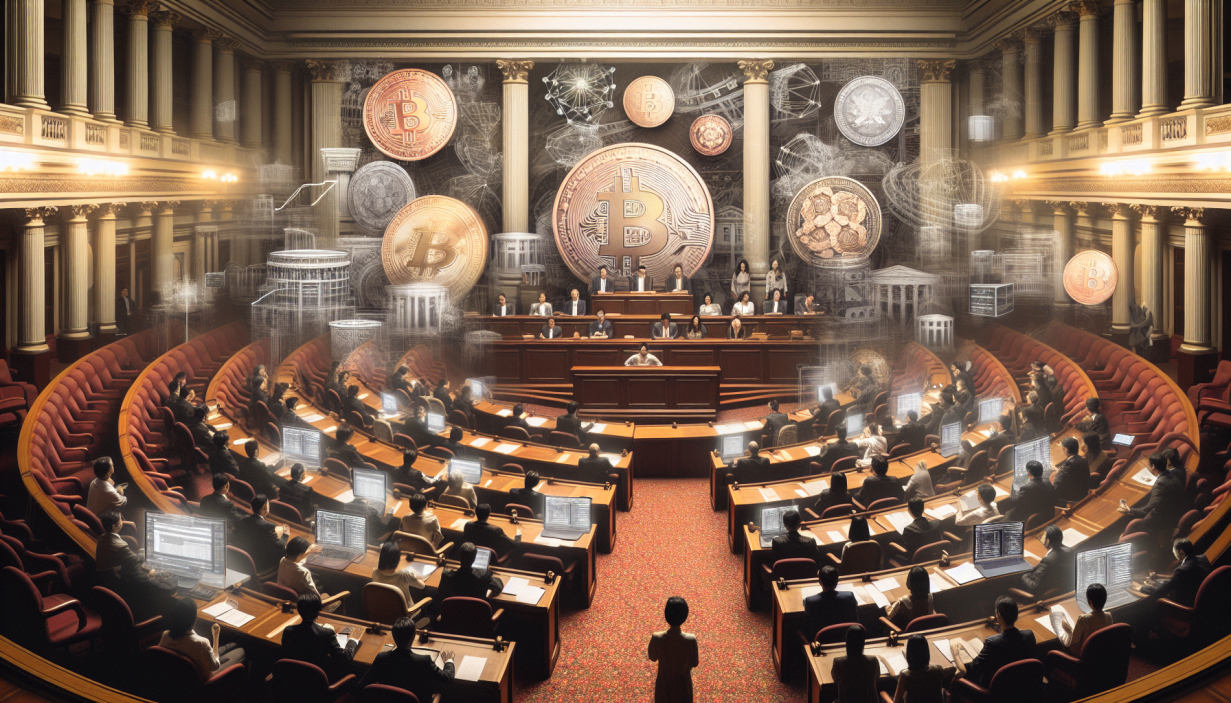US House May Overturn Biden's Anti-Crypto Bill Veto
The outcome of the US House vote could significantly impact regulatory practices and investor protection
July 8, 2024 06:18 AM
Reading time: 2 minutes, 19 seconds
TL;DR The US House of Representatives may vote this week to overturn President Joe Biden's veto of a bill targeting the SEC's controversial SAB 121 rule. The rule mandates digital assets to be listed as liabilities on balance sheets. The outcome could significantly impact regulatory practices and investor protection.

House to Vote on SEC Rule Overturn
The U.S. House of Representatives is poised for a significant vote this week. They could overturn President Joe Biden's veto of a bill to eliminate a controversial rule by the U.S. Securities and Exchange Commission (SEC). According to House Majority Leader Steve Scalise's weekly schedule, the legislation will be addressed imminently.
The bill seeks to reverse the SEC's Staff Accounting Bulletin (SAB) 121. This guidance bulletin mandates that certain companies label digital assets as liabilities on their balance sheets, even if they hold them for customers. The implications of this rule have sparked widespread debate within the financial and crypto industries.
Biden's Veto and Its Implications
President Joe Biden vetoed the bill in May, expressing concern over the potential impact of reversing the SEC's guidance. Biden emphasized that removing SAB 121 could hamper the SEC's ability to implement necessary safeguards and protect investors.
He stated, "This reversal of the considered judgment of SEC staff in this way risks undercutting the SEC's broader authorities regarding accounting practices. My Administration will not support measures that jeopardize the well-being of consumers and investors."
Despite Biden's veto, the Republican-led bill to curb SAB 121 had garnered substantial support. It passed the House with a 228-182 vote and the Senate with a 60-38 vote. The House of Representatives is now considering whether to override the presidential veto.
The Path to Override a Presidential Veto
For Congress to override a presidential veto, two-thirds of elected officials in the House of Representatives and the Senate must vote in favor of the override.
This high threshold underscores the significance of such an action and reflects the intense scrutiny that the bill has faced.
The potential outcome of this vote carries substantial weight. If successful, it could reshape the regulatory landscape for digital assets. It would also signal a notable shift in the balance of power regarding financial regulation between the legislative and executive branches.
What's at Stake?
The debate over SAB 121 highlights broader concerns about regulating digital assets. Proponents of the bill argue that the rule imposes undue burdens on companies and stifles innovation.
Opponents, however, contend that the rule is essential for protecting investors and maintaining market integrity.
As the House of Representatives prepares for this critical vote, the financial industry and investors closely watch the developments. The outcome could have far-reaching implications for the future of digital asset regulation in the United States.
"This reversal of the considered judgment of SEC staff in this way risks undercutting the SEC's broader authorities regarding accounting practices."
In summary, the House's decision this week could uphold or overturn a pivotal rule in digital asset regulation. The vote marks a crucial moment in the ongoing debate over how best to balance innovation with investor protection.



